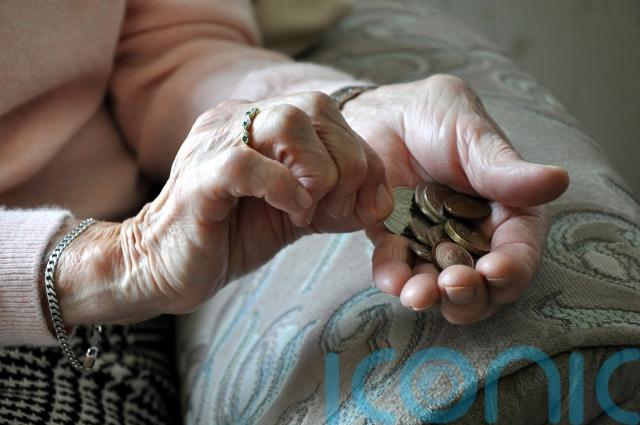
A tax raid on salary sacrifice schemes could be announced in Wednesday’s Budget, reports suggest, raising fears that some people’s retirements could be put at risk.
Here is a look at how salary sacrifice schemes for pensions work and what has happened in recent days:
– What are salary sacrifice schemes?
Salary sacrifice schemes allow people to “give up” a chunk of their salary for a different benefit from their employer.
Employers may offer salary sacrifice as part of their pension scheme as a tax efficient way to help workers boost their pots.
When someone pays into a pension using salary sacrifice, the employer will pay the whole amount into the employee’s pension, including the employer’s contribution.

– What have reports suggested?
There have been reports of a potential cap for people sacrificing their salary while still receiving the tax benefit at £2,000 a year, although some reports have also suggested that restrictions could go further.
– What are the benefits of salary sacrifice schemes?
Salary sacrifice enables people to maintain their take-home pay, as people end up paying lower national insurance (NI) contributions.
There are also NI advantages for employers, helping them to offer more generous workplace benefits.
– Are there any downsides for pension savers from using salary sacrifice?
A lower salary on paper might affect some borrowing applications, such as for mortgages. However, employers can maintain a “reference salary,” which may be considered.
– What could paring back salary sacrifice schemes mean for people and businesses?
Reducing the use of the schemes would mean more Government revenue, with some reports suggesting between £2 billion to £4 billion could potentially be raised, depending on how salary sacrifice was curbed.

But the Association of British Insurers (ABI) and major pensions providers have been urging Chancellor Rachel Reeves not take such a step, pointing out that the next generation of retirees are already at risk of being poorer than the current pensioner population.
Pensions industry bodies have warned that it could mean people and employers cutting back on the amounts going into pensions, storing up problems for pension savers and putting more cost pressures on businesses.
The ABI and the Reward and Employee Benefits Association (REBA) have warned that such a step would place additional strain on businesses and push millions of people into poorer retirements.
Yvonne Braun, director of policy, long-term savings at the ABI, said on Saturday: “The industry has long-warned that we’re ‘sleep-walking’ into a retirement crisis. If the Government goes ahead with suggestions to cap salary sacrifice, then we’re no longer sleep-walking, we’re speed-walking.”
– What issues already exist with people’s incomes and pension saving?
Many people are already thought to be heading for a tough retirement financially and facing a sharp drop in their living standards when they stop work.
Although automatic enrolment has brought millions of people into pension saving, there are fears that too many workers are not saving enough to give themselves a comfortable retirement.
Workers saving into a pension nowadays are often bearing the risk as to how much money they will end up with in retirement, depending on factors such as how much they and their employer contribute and investment performance. Pensions which promise savers a salary-based payout in retirement have become much less common in the private sector, putting the burden on the individual saver.
Cost-of-living squeezes in recent years have also had an impact on people’s ability to save into a pension.
Against such a backdrop, it has been argued that curbing salary sacrifice would make the situation worse. Workers are already seeing their salaries squeezed by frozen income tax thresholds, dragging people into higher tax bands.
If Rachel Reeves really is planning to cap salary sacrifice relief, it's another reckless hit on business and jobs.
Hurting those doing the responsible thing and saving for their retirement at the same time as loading up yet further costs on struggling businesses. pic.twitter.com/m5iLM8FZGJ
— Mel Stride (@MelJStride) November 8, 2025
– Putting salary sacrifice issues aside, what about incomes for current pensioners?
Some 13 million pensioners are set to see their state pension increase faster than inflation next April, due to the triple lock used to calculate state pension increases.
Under the triple lock guarantee, the state pension increases every April in line with whichever is the highest of total earnings growth in the year from May to July of the previous year, Consumer Prices Index (CPI) inflation in September of the previous year, or 2.5%.
Next year’s expected 4.8% increase – in line with wages – means that people receiving the full new state pension could get £241.30 per week – or around £12,548 per year.
Those on the full basic state pension could see their weekly payment rise to around £184.90.
Many pensioners do not receive the full state pension.
Steven Cameron, pensions director at Aegon, said: “While welcome, the increase does come with a sting in the tail for future years. Under the triple lock, the full state pension will increase by a minimum of 2.5% in future years, meaning in 2027/28 it will be at least £12,861.
“This is above the personal allowance of £12,570, which is already frozen until April 2028, with speculation of an extended freeze until 2030.”
He added: “Those with solely a state pension could face receiving letters from the taxman demanding they pay the tax due.”
Subscribe or register today to discover more from DonegalLive.ie
Buy the e-paper of the Donegal Democrat, Donegal People's Press, Donegal Post and Inish Times here for instant access to Donegal's premier news titles.
Keep up with the latest news from Donegal with our daily newsletter featuring the most important stories of the day delivered to your inbox every evening at 5pm.